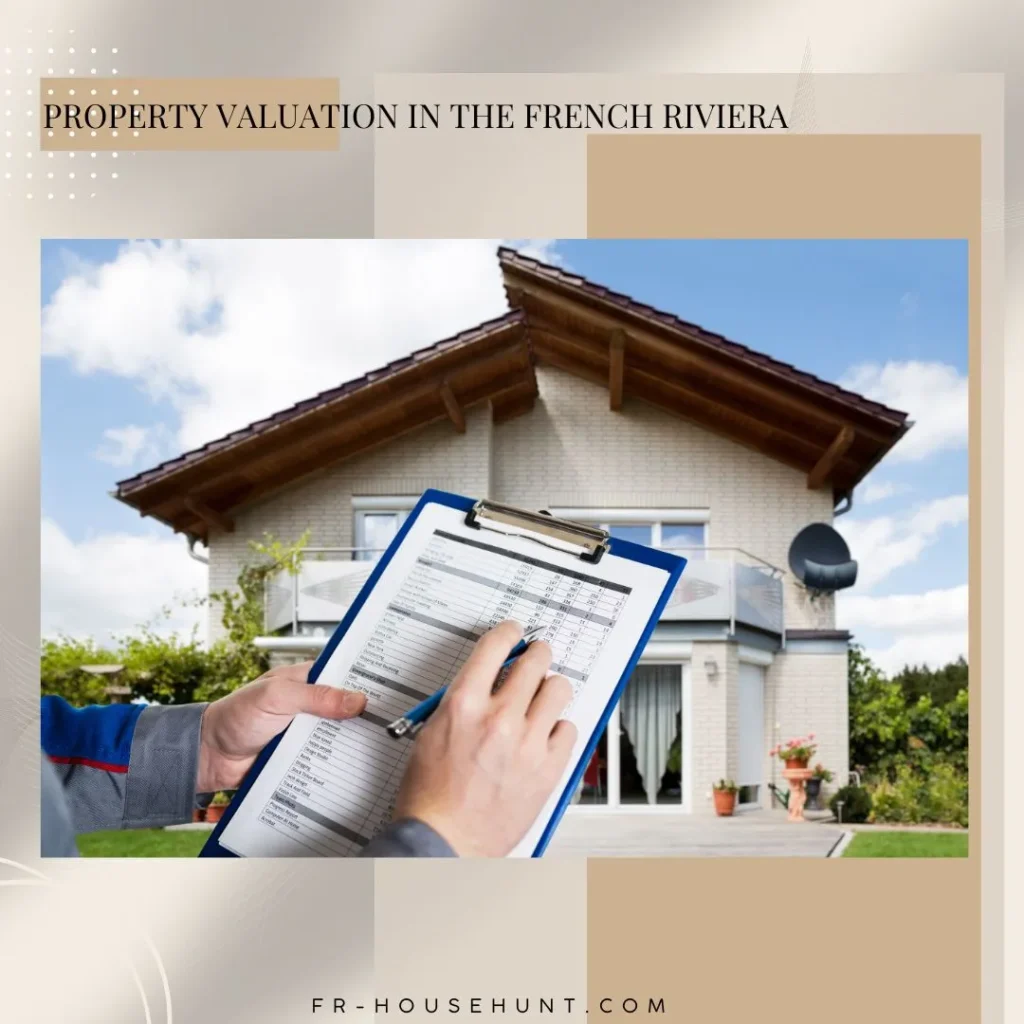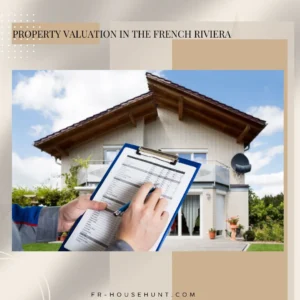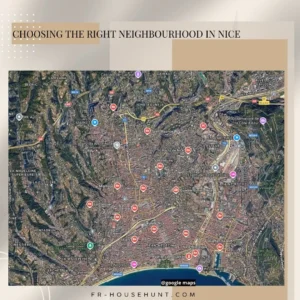
Property Valuation on the French Riviera: Highlights and Pitfalls You Need to Know
Buying a property on the French Riviera is an exciting journey. The sunshine, the sea views, the lifestyle—it’s easy to fall in love at first sight. But before you get swept away, there’s a crucial step you need to fully understand: property valuation. Done right, it gives you clarity and confidence. Done poorly, it can cost you time, money, and plenty of stress.
As a property hunter in Nice, I’ve seen firsthand how essential (and tricky) valuations can be. So let’s unpack what property valuation is all about, the methods behind it, the pitfalls to avoid, and what you should really pay attention to when buying a home on the Côte d’Azur.
First and Foremost: What Is the Definition of a Property Valuation?
At its core, a property valuation is an estimate of a property’s current market value. It’s not just a guess; it’s a structured assessment based on various data points—such as recent sales, property condition, and market trends—combined with professional judgment.
Think of it as a compass. It won’t tell you the exact euro amount a buyer will pay, but it will point you in the right direction and help you negotiate with confidence.
What Documents Need to Be Prepared for a Property Valuation?
If you’re planning to have your property valued, you (or the seller) should have a few key documents ready:
- Title deed (acte de propriété)
- Property tax documents (taxe foncière and taxe d’habitation)
- Floor plans and surface certificates (loi Carrez for apartments)
- Energy performance certificate (DPE)
- Co-ownership regulations and recent meeting minutes (if the property is in a condominium)
- Proof of renovation or building work (invoices, permits)
The more complete the file, the more accurate the valuation can be.
What Calculation Methods Are Used in Property Valuation?
Valuations can be approached in different ways. Here are the most common methods you’ll encounter:
Comparison Method: The Best Known and Most Widely Used
This is the standard approach: comparing your property with similar ones recently sold in the area. It’s reliable if there’s enough recent data.
Pitfall: In Nice and across the Riviera, no two properties are exactly alike. A sea view, a balcony, or even the side of the street can dramatically shift the value.
Income Method: Widely Used by Investors
This method calculates the property’s value based on the income it can generate (usually rental income). It’s popular with investors looking at yield.
Pitfall: Rental values on the Riviera can fluctuate seasonally, especially with short-term lets.
Previous Value Method: Useful, But Not Very Accurate
This looks at what the property last sold for and adjusts for market trends.
Pitfall: The market may have shifted dramatically since the last sale. What seemed fair five years ago could be far off today.
Depreciation Method: Relevant for Properties Requiring Renovation
This method estimates the cost of rebuilding the property new and subtracts depreciation.
Pitfall: Renovation and construction costs vary greatly depending on the location (and bureaucracy) in the French Riviera.
Other Valuation Methods Available on the Market
Some firms use hybrid or proprietary algorithms, but these are often black boxes. Transparency is key—if you don’t understand how the number was reached, be cautious.
Do you get lost with calculation methods used to valuate a property?
What Data Should Be Used for an Accurate Property Valuation?
The strength of a valuation depends on the quality of the data behind it. Here’s what matters:
1) Prices of Properties Currently for Sale: Beware of Negotiation
Asking prices are just that—asks. They often include negotiation margins. Don’t confuse them with true market value.
2) Prices of Properties Sold: Beware of Agency Fees
Actual sales data is more reliable, but make sure you know if fees were included or excluded in the published price.
3) The Date on Which Prices Were Last Updated Is Essential
A sale price from two years ago is almost irrelevant in a fast-moving market like the Riviera. Currency shifts, demand, and regulations can all impact value quickly.
4) Rental Values: Beware of Charges and Advertised Prices
A rental listing price doesn’t tell the full story. Service charges, maintenance, and local taxes can significantly affect profitability.
5) Renovation Costs: Depend on the Location of the Property
Renovating in central Nice vs. a perched village above Villefranche can mean huge differences in costs due to logistics, labor availability, and permits.
6) Market Price Trends for a Specific Address: Imprecise Data
Street-level data can be misleading. Even two buildings next door can have vastly different values based on orientation, amenities, or even the concierge.
How Can You Accurately Estimate the Quality of a Property?
Numbers are only half the story. The quality of a property—its layout, light, noise levels, and view—can’t be captured fully by spreadsheets. Visiting in person, at different times of day, is essential.
On the French Riviera, small details like a south-facing balcony, a lift in the building, or unobstructed sea views can increase value by tens or even hundreds of thousands of euros.
What Is the Difference Between the Market Price and the Asking Price?
- Asking price: The price set by the seller, often with room for negotiation.
- Market price: The price buyers are realistically willing to pay, given comparable properties and demand.
In a hot market like Nice, asking prices can overshoot by 10–20%. A proper valuation helps you bridge the gap and avoid overpaying.
Who Is Qualified to Estimate the Quality of a Property?
- Real estate agents know the market well, but they may inflate values to win listings.
- Notaries have access to official sale data and can provide neutral assessments.
- Chartered surveyors or property hunters can give detailed, unbiased valuations, especially if they work directly for the buyer.
If you’re buying, lean towards independent and local professionals rather than those with a stake in the sale.
How Much Does a Property Valuation Cost?
The cost depends on who performs it:
- Some real estate agents offer free valuations (but remember their incentive).
- Independent surveyors or experts may charge anywhere from €200 to €1,000 depending on the complexity of the property.
- Comprehensive reports, especially for luxury properties, can be higher but worth the investment.
Be Wary of Online Estimates
Online valuation tools are tempting, but they can’t account for local nuances—like the difference between the sunny side of a street and a shaded one. Algorithms also rely on historical averages, which may not reflect current demand spikes.
Use them as a rough guide, but never as your only source.
Property Valuation: a roadmap
A property valuation isn’t just a number—it’s a roadmap. On the French Riviera, where unique features and lifestyle perks add enormous value, understanding the highlights and pitfalls of valuation is essential.
Get it right, and you’ll have the confidence to make a smart purchase in one of the world’s most desirable markets. Get it wrong, and you risk overpaying or missing out on a hidden gem.
So take the time, gather the right data, and work with trusted professionals. Because on the Côte d’Azur, the right valuation is your passport to not just a home—but a way of life.
Do you want to find (and to buy) a property in the french riviera at the right price?
Let’s talk. We help foreign buyers find their dream home in the French Riviera in no time.
Contact us




